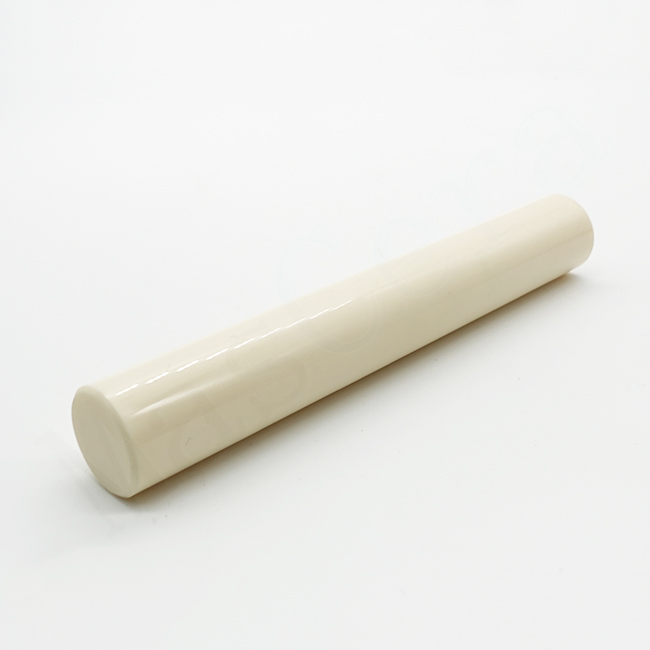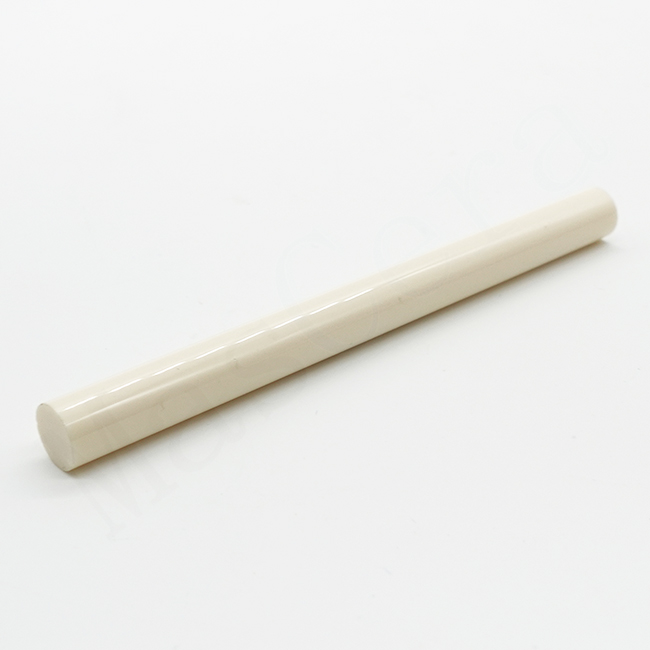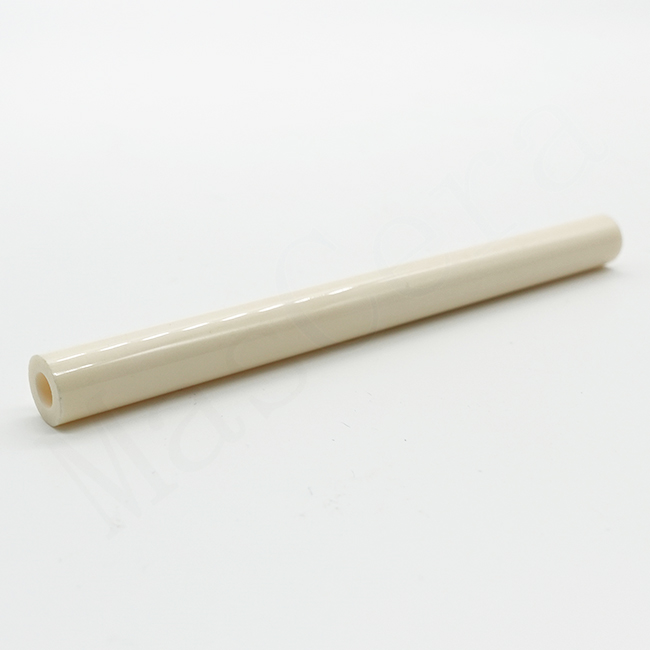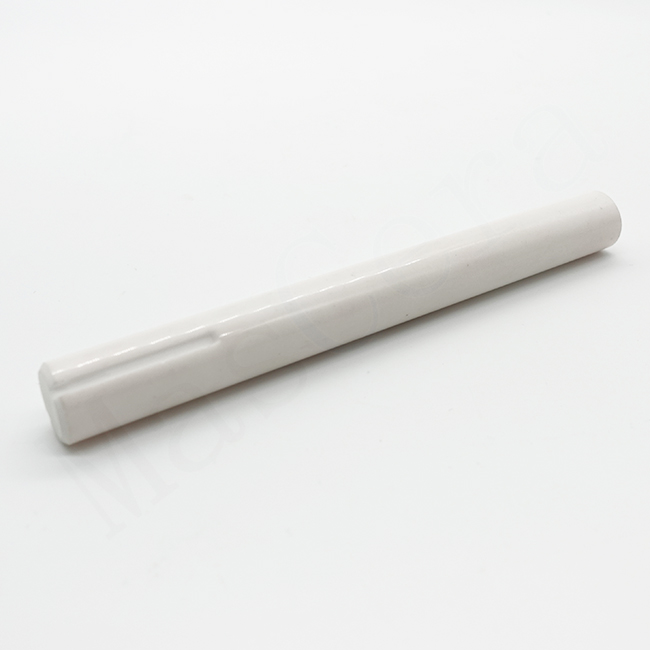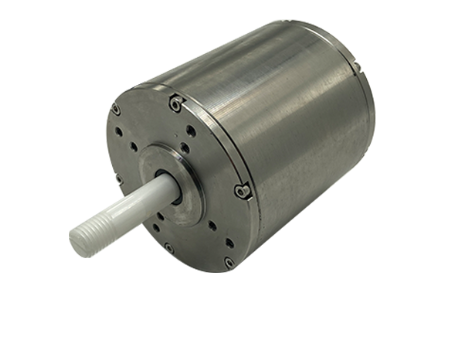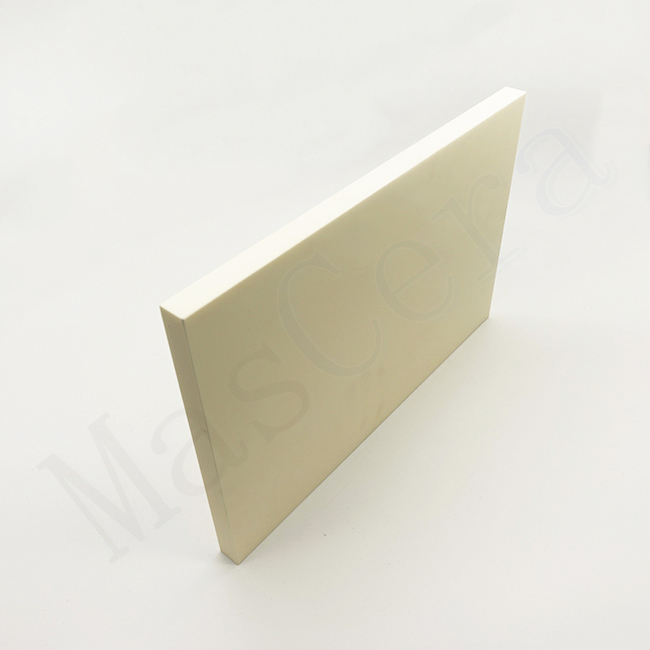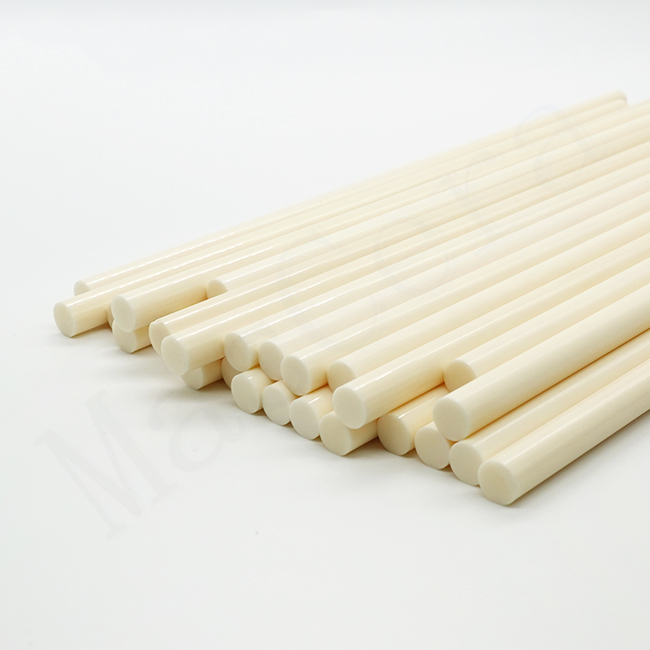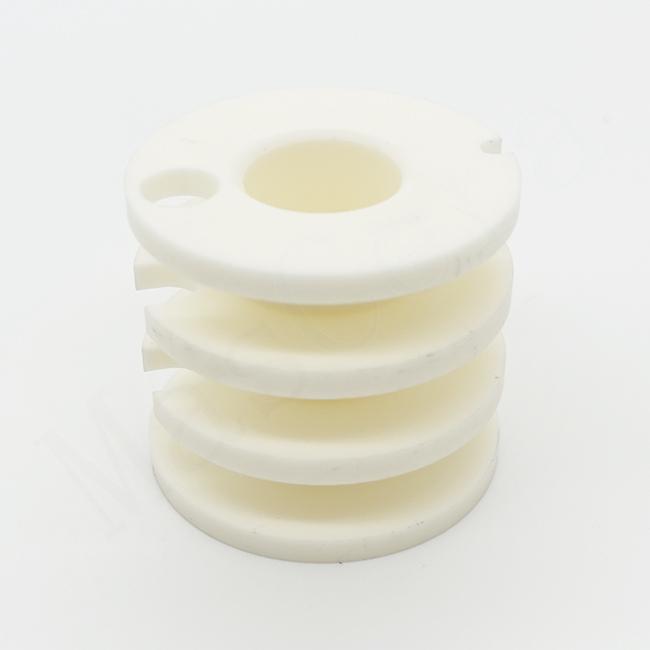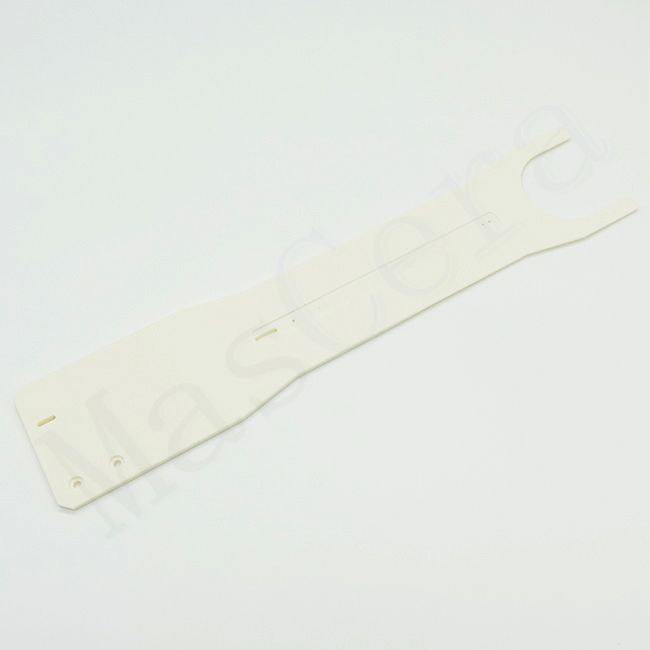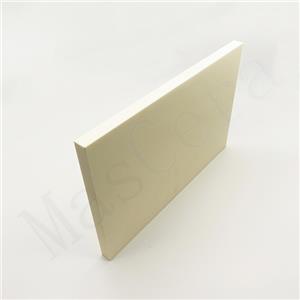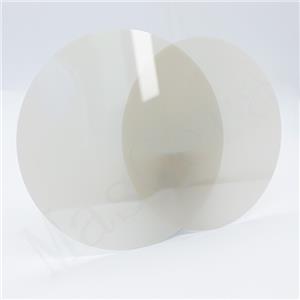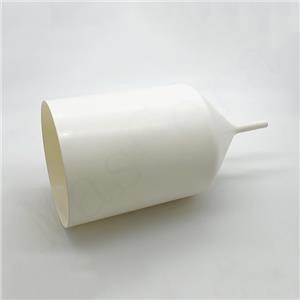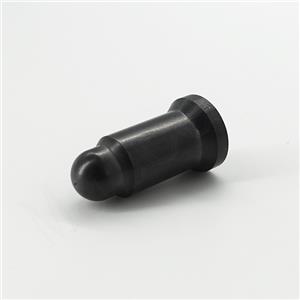Wear Resistant Alumina Ceramic Motor Shaft

- MSJ/AL-018
- Alumina ceramic
- Customized
- 10 pcs per type
- industrial applications
The Mascera Alumina Ceramic Motor Shaft is a high-performance engineering component designed for electric motors and pump systems. Made from advanced alumina (Al₂O₃) ceramic, this shaft delivers exceptional durability, electrical insulation, and resistance to harsh operating conditions.
Any inquiry please email info@mascera-tec.com or call +86 13860446139
Product detail
The Mascera Alumina Ceramic Motor Shaft is a high-performance engineering component designed for electric motors and pump systems. Made from advanced alumina (Al₂O₃) ceramic, this shaft delivers exceptional durability, electrical insulation, and resistance to harsh operating conditions. It is an ideal solution for engineers seeking to improve motor reliability and lifespan by replacing traditional metal shafts with a superior ceramic alternative. Ceramic motor shafts are widely used in water pumps, household appliances, micro motors, and other equipment where long service life and maintenance-free operation are paramount.
Main properties
Alumina ceramic motor shafts, showing precision machining and custom flat sections for coupling. Alumina ceramic shafts offer a combination of material properties that outperform conventional metal shafts in demanding applications:
Excellent Electrical Insulation: Alumina is an electrical insulator, preventing stray currents along the shaft. This ensures no electrical leakage or eddy currents through the shaft, which protects motor bearings and improves safety in electric motors. The high-purity alumina (up to 99.7%) provides superior dielectric strength for use in high-voltage or magnetic environments.
High Hardness & Wear Resistance: Technical alumina ceramic is extremely hard and can withstand prolonged friction and abrasion. The shaft’s surface resists wear under high-speed rotation and heavy loads, resulting in a longer service life than steel shafts. This superior tribological performance means minimal wear over thousands of operational hours, reducing maintenance frequency.
Corrosion Resistance: Alumina ceramic is chemically inert and will not rust or corrode. It withstands exposure to water, salt, acids, alkalis, and most chemicals without degradation. Unlike metal shafts that can corrode or leach ions, ceramic shafts remain stable in corrosive or wet environments, making them ideal for chemical pumps and marine applications.
High Temperature Stability: Alumina shafts tolerate extreme temperatures far beyond the limits of common metals. High-purity alumina components can operate up to ~1200 °C continuously, which is critical for motors or pumps handling hot fluids or high-heat environments. The ceramic material will not soften or deform at elevated temperatures, ensuring reliable performance in engine applications and furnaces.
Dimensional Stability & Low Thermal Expansion: With a low coefficient of thermal expansion, alumina experiences minimal dimensional change under temperature fluctuations. This preserves tight clearances and alignment in the motor, contributing to smooth, vibration-free rotation. The shafts are also non-magnetic, so they do not interfere with magnetic fields in motors, further improving efficiency for high-speed or precision electric motors.
Light Weight: Alumina ceramic has about half the density of steel. Replacing a metal shaft with ceramic can reduce rotating mass, which may improve the dynamic response of small motors and decrease wear on supporting bearings. Despite being lighter, the shafts retain high stiffness and strength in operation.
Typical applications
Alumina ceramic motor shafts, showing precision machining and custom flat sections for coupling. Alumina ceramic shafts offer a combination of material properties that outperform conventional metal shafts in demanding applications:
Water & Chemical Pumps: Used as impeller shafts in water pumps, chemical processing pumps, and magnetic drive pumps.
Household Appliances: Employed in home appliance motors and pump assemblies (e.g. washing machine pumps, dishwasher circulation pumps, vacuum cleaners).
Micro Motors and Precision Equipment: For micromotors in devices like small fans, HVAC actuators, and precision instruments, alumina shafts offer superb dimensional stability and quiet operation.
Automotive & Transportation: Found in specialty automotive applications such as engine water pumps, fuel pumps, and electric vehicle motors.
Industrial Machinery: Deployed in various mechanical equipment, including valves, mixers, and high-temperature furnaces.
Technical Specifications
Material Purity: Available in multiple alumina grades, typically 95% (standard alumina), 99% (high-purity alumina), and ultra-high purities up to 99.5% or 99.7% Al₂O₃. Higher purity alumina offers improved electrical insulation and slightly higher strength, while 95% alumina provides an economical choice with excellent performance.
Size Range: Diameters from as small as 0.5 mm up to 50 mm or larger can be produced, covering micro-shafts through large drive shafts. Lengths can range from about 5 mm (for short sensor shafts) up to 1000 mm (1 meter) for specialized equipment. This broad sizing capability means we can supply tiny precision shafts for micromotors or substantial shafts for industrial machinery, all custom-made to your dimensions.
Precision Tolerances: Typical geometric tolerances include cylindricity to 0.005 mm and coaxiality to 0.005 mm on the shaft diameter. We routinely grind and hone shafts to meet fine diameter tolerances (on the order of ±0.005 mm or better, depending on size) and parallelism within 0.005 mm for shaft shoulders. This ensures smooth rotation and proper alignment in high-speed motors.
Mechanical & Thermal Properties: Alumina shafts exhibit a density of 3.65-3.85 g/cm3, Vickers hardness around 1300–1800 HV, and flexural strength 300–390 MPa (for 95–99.5% purity grades). They maintain high strength up to their max operating temperature (typically 1500–1700 ℃ depending on grade). The coefficient of thermal expansion is approximately 8×10^-6/K, much lower than steel, contributing to the material's thermal shock resistance. Electrical resistivity is on the order of 10^14 Ω·cm at room temperature, giving excellent insulation performance.
Quality Standards: Every ceramic shaft is manufactured in accordance with ISO 9001 quality management systems and inspected to meet customer specifications. Full material certifications and inspection reports (dimensional, surface finish, etc.) can be provided upon request, ensuring that the technical specifications are met consistently batch after batch.
Material Data Sheet
Item | Unit | 95% Al2O3 | 99% Al2O3 | 99.5% Al2O3 | 99.8% Al2O3 |
Purity | % | 95 | 99 | 99.5 | 99.8 |
Color | - | White/Pink | Ivory | Ivory | Ivory |
Density | g/cm3 | 3.65 | 3.85 | 3.90 | 3.92 |
HV Hardness | - | >1300 | 1700 | 1750 | 1800 |
Fracture Toughness | Mpa.m1/2 | 3-4 | 3-4 | 4 | 4 |
Young’s modulus | Gpa | 320 | 340 | 370 | 390 |
Flexural Strength @25℃ | Mpa | 300 | 330 | 375 | 390 |
Compressive Strength@25℃ | Mpa | 2200 | 2350 | 2450 | 2500 |
Thermal Conductivity@25℃ | W/m.k | 18-22 | 27 | 29 | 32 |
Thermal Expansion Coefficient (25-1000℃) | 10-6mm/℃ | 8 | 8 | 8 | 8 |
Thermal Shock Resistance | △T(℃) | 220 | 180-200 | 180-200 | 180-200 |
| Max. Working Temperature | ℃ | 1500 | 1650 | 1700 | 1700 |
Dielectric Strength | kv/mm | 16 | 20 | 22 | 22 |
Electrical Resistivity@25℃ | Ω.cm | 1014 | 1014 | 1014 | 1014 |
Dielectric Constant (@1MHz, 25℃) | - | 9 | 9.7 | 9.7 | 9.8 |
Dielectric Loss | - | 0.0004 | 0.0002 | 0.0002 | 0.0001 |

